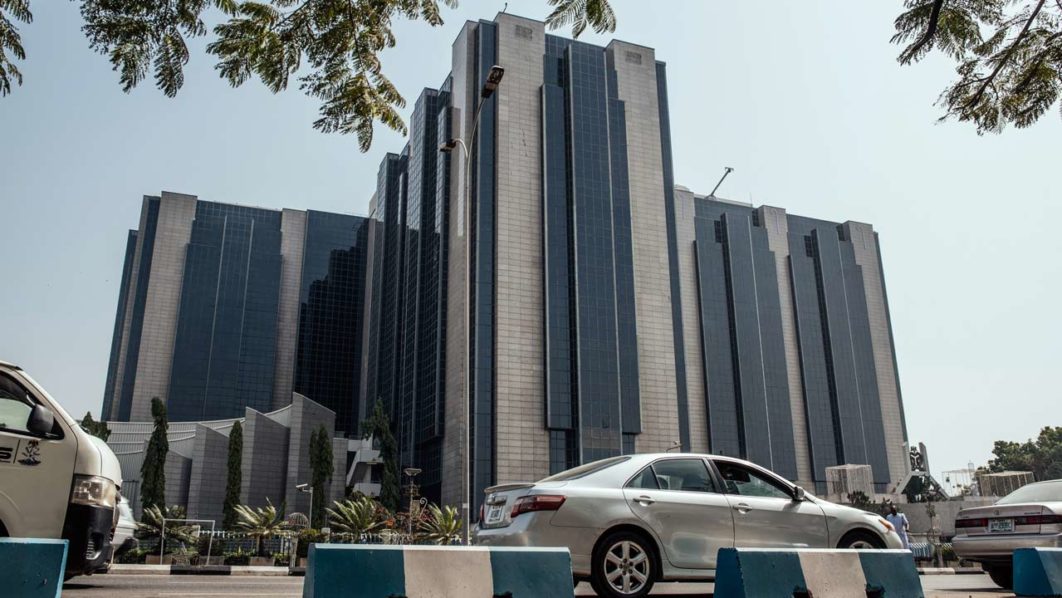
AS concerned authorities continue to shed light on the e-naira project to foster its acceptability among the masses, the level of digital infrastructure, network reliability, low Internet penetration and sundry underlying problems that may constitute serious challenges to its sustainability are highlighted in this report by ADEYEMI ADEPETUN and HELEN OJI.
Beyond the pomp and pageantry that heralded the launch of the e-naira, emerging facts seem to suggest that the task before promoters of the initiative appears quite huge. The e-naira is a Central Bank of Nigeria-issued digital currency, which provides a unique form of money denominated in naira. It also serves as a medium of exchange as well as a store of value, while offering better payment prospects in retail transactions in comparison with cash payments.
e-Naira is the first of its kind in Africa. According to the Atlantic Council Central Bank Digital Currency (CBDC) tracker, e-naira debut made Nigeria one of the five countries in the world that have their CBDC as the popularity of digital and cryptocurrencies continue to soar despite clampdowns in several countries.
e-Naira comes in two versions – one for individuals (speed wallet) and the other for merchants (merchant wallet). At the launch, the Governor of the Central Bank of Nigeria (CBN), Godwin Emefiele, said that e-naira will make a significant positive difference in Nigeria and among Nigerians, including supporting a resilient-payment ecosystem, encouraging rapid financial inclusion, reducing the cost of processing cash, enabling direct and transparent welfare interventions for citizens, increasing revenue and tax collection, facilitating diaspora remittances into the country, reducing the cost of financial transactions and improving the efficiency of payment in Nigeria.
However, barely 48 hours after its formal existence, the app suffered an attack and was displaced from the Google Play Store. Even though it has since been restored, the glitch showed that beyond the rhetoric, more work still needs to be done to perfect its reliability and acceptability among the Nigerian populace.
But in explaining the brief displacement of the app, CBN said it was taken down to carry out an important upgrade. It, however, blamed Nigerians for the sudden disappearance of the app adding that many people failed to enter their details correctly in an attempt to download the app leading to the glitch.
Interestingly, the e-naira speed wallet applications recorded over 100, 000 downloads from the Google Store within 24 hours of its launch.
Be that as it may, several challenges lie ahead of e-naira. One of the topmost being its acceptability among the middle and low class in the society; its ability to bridge the financial inclusion gap in the country, and contributes significantly to Nigeria’s digitisation agenda.
e-Naira And Financial Inclusion Gap
TODAY, so many Nigerians are still excluded, not only financially, but also from basic telecoms services. For instance, the Nigerian Communications Commission (NCC) revealed recently that there are 114 access gaps in the country, with some 25 million Nigerians still lacking access to basic telephone services.
Already, the e-naira has been touted as elitist, meaning that it could be a hard sell to artisans including, hairdressers, mechanics, bus drivers/conductors, as well as market women and farmers in some of the remotest parts of the country, who might not find the new technology attractive.
Besides, the e-naira technology can only ride on the smartphone technology because it requires downloads, which feature phones cannot deliver.
Findings showed that out of the over 200 million Nigerians with over 300 million telephone lines connected to the network, estimates show that between 25 and 40 million are smartphone users. The data also suggests very strong growth over the next four years, which if estimates prove true, will be 140 million users by the time 2025 rolls around.
Going by the statistics, it simply shows that before 2025, more investments would be required to bridge these identified gaps.
According to the Enhancing Financial Innovation and Access (EFInA), the Access to Financial Services in Nigeria 2020 Survey showed that 51 per cent of Nigerian adults are using formal financial services, such as banks, microfinance banks, mobile money, insurance, or pension accounts, up from 49 per cent in 2018. This has largely been driven by growth in banking, with 45 per cent of Nigerians banked in 2020, up from 40 per cent in 2018.
EFInA noted that growth in digital financial services and agent banking highlights opportunities to drive faster progress toward financial inclusion, particularly for excluded groups such as women, rural dwellers and northern Nigerians.
Although financial inclusion has grown in the past decade, Nigeria fell short of the National Financial Inclusion Strategy targets for 2020. The country had aimed to reach 70 per cent of Nigerians with formal financial services by 2020; the actual figure was 51 per cent.
The strategy also sets the target for overall financial inclusion, which counts Nigerians that use either formal financial services or informal financial services that are not nationally regulated, such as savings groups.
The overall financial inclusion target was 80 per cent by 2020, and EFInA data showed that only 64 per cent of Nigerian adults were financially included by the end of 2020. This means that 36 per cent of adults (or 38 million) remain completely financially excluded.
More Digital Infrastructure Needed
TO date, network penetration is still largely 2G and 3G dependent. But there have been massive investments in 4G, even as the country prepares to commercially launch 5G by January 2022. However, on 2G, 3G and even 4G, there are several complaints around the quality of service offered by operators. This challenge is seen as a major limitation that could hinder the success of e-naira.
Besides, with the majority of Nigerians still battling with low per capita income as a result of the slow-paced recovery of the economy, the purchase of smartphones might be jettisoned for more pressing needs.
Already, a report by Alliance for Affordable Internet (A4AI) revealed that even though smartphones provide access to life-saving information, enable students to continue their studies online, and foster social connection, they remain unattainable for many around the world due to soaring costs.
With a study of 187 countries, A4AI found that the global average cost of a smartphone is around 26 per cent of an average monthly income, which is $104. However, there are significant divisions in affordability between regions and countries that smartphone remain inaccessible to many.
Specifically, A4AI, which is a global coalition working to drive down the cost of Internet access in low- and middle-income countries of the world, said in countries like Nigeria, South Africa, Kenya, the people pay 45 per cent of their monthly income to purchase a smartphone. The 45 per cent is a result of devaluation and inflation witnessed in the economies. Further, so many people are not yet aware of the e-naira initiative, especially among the artisans and others.
Speaking with The Guardian, the Nigerian Coordinator, A4AI, Olusola Teniola, said among other things, the Federal Government would require further investments in educating the masses, an increase in the adoption of smartphone devices, improvement in digital literacy and massive digital infrastructure deployment to fill the dark spots where millions of Nigerians are unable to afford access to the Internet or have no power to charge their mobile devices and require financial stimulus to be able to support themselves and to fund the usage of these e-wallets, whether by data or by USSD charges that will be applied when they are being used to send money or to make payments.
Teniola, a former president of the Association of Telecommunications Operators of Nigeria (ATCON), said the e-naira launch constitutes the latest in several digital service initiatives that the Federal Government has introduced to the public since 2018, all of which are aimed at enabling a digital economy that is still evolving.
According to him, the e-naira referred to social interventions and efficiencies in digital payments using the CBN’s CBDC strategy. “This was mentioned as a journey by the CBN governor and recognised by our president that it will be closely monitored. It is now for the Federal Government to educate the masses about the benefits of the e-naira project for it to gain any mass appeal and acceptability,” he stated.
On its possible impact on the economy, Teniola said it is hard to see how the launch of a digital currency can boost an economy when essentially it represents a digital form of paper currency.
He explained that the boost to the economy will come from increased exports outside oil and “that is the human talent that should be harnessed for the potential skills in STEM and knowledge society.
“The Federal Government needs to put in place a conducive environment to enable the establishment of digital skills, digital jobs, digital services and products that youths can export. These will boost our economy and diversify it away from being a mono-product economy that it still essentially is.”
Is Nigeria In A Hurry?
WITH the launch of the e-naira by President Muhammdu Buhari, Nigeria joined Bahamas, Sweden, Cambodia and South Korea as nations that are now on the global CBDC tracking map. Some analysts opine that the country might have joined the league of countries that are introducing e-currencies too early going by the challenges at hand and the huge financial inclusion gap.
But the Founder of Atmosphere, a Fintech company, Wande Adalemo, believes that the country should not play second fiddle or be a latecomer. He pointed out that when digital currencies failed when they were first introduced in the USA in the 1980s, “but the very strong legacy system in the country gave a fillip to electronic transactions.”
Adalemo, who explained that advanced countries have been able to integrate cryptocurrencies into their system, further pointed out that digital currencies have gone through several evolutionary processes, and these advanced countries have perfected the system by learning from their past mistakes.
He said in Nigeria’s case, the system has not been built to that level yet, but the country is gradually making efforts to put things in proper perspective.
Adalemo expressed the belief that Nigeria has been able to manage the matter of cryptocurrency well, stressing that the youths are a vast majority of the population and are found in the digital realm and the bitcoin community, “so we expect a synergy that will boost the electronic payment system.”
Banks Want e-Naira To Be Well Appropriated
THE Vice President, Highcap Securities, David Adonri, said the benefits of e-naira outweigh the risks generally. He said the introduction of the scheme would go a long way in filling the gap created by the non-recognition of privately issued cryptocurrency by the government.
Aside from this, he also pointed out that it could facilitate domestic and external trade by breaking down the exchange barrier.
Furthermore, Adonri added that it would increase the speed and efficiency of payments, while also reducing the cost of transactions
However, on the downside, Adonri said that banks would face stiffer competition with regulators because deposit money banks have been in the business of electronic transactions that attract charges. He said the development was capable of eroding the intermediating income of banks if they are not allowed to share from the e-naira charges, just as he underscored that appropriation of the fees will become clearer when the fee-charging regime of the CBN begins.
“If no sharing takes place, banks may lose intermediation income. Banks are the onboarding agents, perhaps they may have a share in the fees,” he stated. He said another downside of the initiative is that being a vehicle operated based on foreign technology, the product can be manipulated by technology providers.
Adonri explained: “If the CBN creates e-naira recklessly like the regular currency, it can increase inflation. The participation of the populace in the programme will take time to gather momentum. A lot more sensitisation and enlightenment will be needed to achieve this, but the programme will still be elitist due to low Internet penetration,” he said.
An independent investor, Amaechi Egbo, said a lot of education still needs to be done to convince the banking public of the advantages of transacting in the digital currency, especially the fact that despite what has been done with mobile and Internet banking, there is still a high level of resistance from Nigerians when it comes to using any form of an electronic system for banking.
Egbo, who pointed out that most Nigerians do not even make use of ATMs, mobile or Internet banking due to a high level of illiteracy, especially in the rural areas, argued that most bank customers prefer to do banking the way they feel is safe for them and their businesses.
The investor also expressed optimism that if all concerned parties, including financial institutions up the ante in awareness creation/publicity, and the entire process duly regulated and implemented, it will bring about the much-needed revolution in the nation’s banking system.
He agreed with Emefiele that if well implemented, the scheme would facilitate diaspora remittances and boost trade in addition to the fact that its universal nature would make it easy to be held by anyone, anywhere, and at any time.
“Naira as a digital currency will only reduce the handling of cash if properly embraced by the people. The disadvantage is that it does not increase in value as cryptocurrency does. It has the same rate as the naira. So, I do not see it enhancing business operations because it is the same as naira in value, and does not increase in value with demand.”
Also in sync with Egbo’s assertion that the e-naira cannot enhance business operations is another business merchant and cryptocurrency dealer, Uche Nwosu, who stressed that floating the e-naira by the CBN is not what is needed presently to boost businesses.
According to him, business operators are interested in measures that would urgently strengthen the naira and make it regain its value on a sustainable basis, adding that this could only be achieved by prioritising infrastructure development and backward integration to boost export, reduce cost and inflation.
In addition, he said people are sceptical about embracing digital solutions in Nigeria due to the nation’s slow digital connectivity and network issues.
In his contribution, a business operator, Emeka Maduka, described the scheme as a good step in the right direction because that is the direction that the global economy is moving. It would also enhance easy trading and settlements.
While noting that there is not much understanding of the workability of the initiative, he charged the CBN to develop a framework that would address this, considering the high level of digital illiteracy in the country. If these issues are addressed, he added, it would attract more unbanked Nigerians into the scheme and boost financial inclusion.
CBN Assures Of e-Naira’s Reliability
IN assuring of the dependability and reliability of the e-naira project, the CBN’s Director of Corporate Communications, Osita Nwanisobi, while speaking at the ongoing CBN-Fair in Abakaliki, Ebonyi State, explained that the security and dependability of the e-naira stems from the fact that it uses cryptographic technologies encrypted with two factors for authentication.
The CBN, however, observed that the new digital financial project might pose some challenges to Nigerians in the short term because it works with Bank Verification Numbers.
“The issue of security and dependability of the e-naira platform is guaranteed. It is guaranteed because the technology uses two-factor cryptographic encrypted authentication. And so, the issue of whether the platform is secured is taken, as it is secured.
“The e-naira project is a journey; we expect that there are going to be minor challenges in the short-term, and I can tell you where some of these things are coming from. The e-naira platform works with BVN, and if I ask some people if they have email addresses, they would tell me they do not have.”
He warned Nigerians to eschew unregulated financial schemes propagated by fake Ponzi operators, stressing that this has robbed them of their hard-earned money.
“The first is to sensitise the Nigerian public because you are the greatest security for yourselves. So, when we sensitise you, you will begin to see some of these things (fake Ponzi operators) and avoid them. The moment you see them, you will know them…The other thing is for us to work with security agencies to ensure that those who gullibly defraud Nigerians are brought to book and we have done quite a number in this regard. We work with security agencies to ensure that those who claim what they are not, are brought to book.”






